This Workshop is now over.
Thank you to all who attended!
A Grounding in Critical Thinking Theory and Application
Spring 2011 Workshops...
March 4th-6th, 2011 (Friday through Sunday)
at the Claremont Resort, Berkeley, CA
Our Block Rate deadline has been extended!!
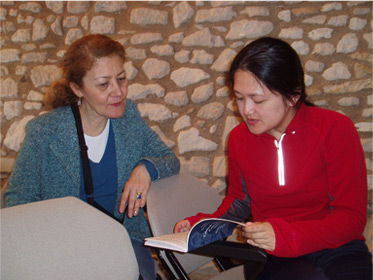
For more than 30 years, the Foundation and Center for Critical Thinking have been working together to bring about essential change in education through the cultivation of fairminded critical thinking. Each year we offer workshops and conferences to advance this important goal. Our spring workshops provide an opportunity for you to learn or deepen your understanding of the foundations of critical thinking and to contextualize them in your work or teaching. Critical societies are created one person, one teacher, one professor, one administrator at a time. We hope you join us.
We encourage you to come with fellow faculty or staff to enrich your experience- please see our special group rates!
| Spring 2011 Workshops in Critical Thinking | Cost Per Person |
| EVENT OPTIONS: IF PAID BETWEEN Oct 25 2010 AND Feb 04 2011 | 1 Person | 2-3 people | 4-6 People | 7 or More |
Spring 2011 Critical Thinking Workshop (15% off early-bird discount)
| $408.00 | $382.00 | $365.00 | $276.00 |
| EVENT OPTIONS: IF PAID AFTER Feb 04 2011 and BEFORE Mar 04 2011 | 1 Person | 2-3 people | 4-6 People | 7 or More |
| Spring 2011 Critical Thinking Workshop | $510.00 | $485.00 | $460.00 | $345.00 |
Introduction to the Workshops
Critical thinking is essential to all well-conceived instruction.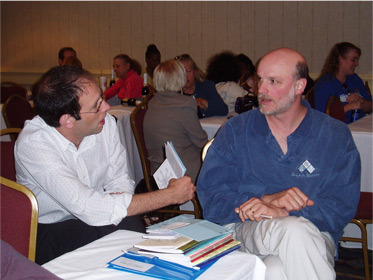
It defines the ultimate goals of education. Educated persons share common intellectual standards and abilities. An educated person values and seeks to achieve clarity, accuracy, precision, relevance, depth, breadth, logicalness, and significance in thinking. Similarly, an educated person masters the elements that underlie and define the structures of all thought:
-
An educated person routinely seeks to identify key purposes and goals and explicitly formulates questions, problems, and issues necessary to accomplishing those purposes and goals.
-
An educated person gathers relevant information and makes reasonable inferences from that information (in tackling questions, problems and issues they are seeking to answer, solve, or resolve).
-
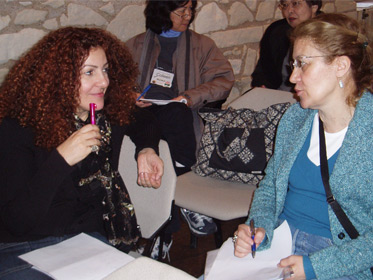
An educated person notices key assumptions (that underlie thinking) and important implications and consequences (that follow from thinking).
-
An educated person effectively analyzes key concepts and recognizes points of view and is able to shift either or both when necessary (in attempting to solve a problem or resolve an issue).
In the spring workshops we focus on critical thinking as essential to education. On the first day we will introduce the foundations of critical thinking. The second and third days offer options for contextualization.
Registration is 8:00-9:00 am on Friday March 4. Sessions are 9:00am to 4:00pm on Friday and Saturday, 9:00am to 3:00pm PST on Sunday. You may download a schedule from this page- scroll down below this section.
We encourage groups to attend; please see group rates when you register.
Session choices are as follows:
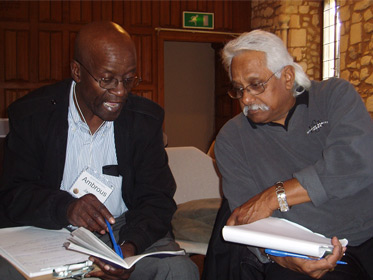 Day One, Friday: choose one of the following…see descriptions below
Day One, Friday: choose one of the following…see descriptions below
-
Foundations of Critical Thinking: College and University…led by Dr. Richard Paul
-
Foundations of Critical Thinking: K-12…led by Dr. Enoch Hale
-
Foundations of Critical Thinking: Institutional Leadership…led by Dr. Linda Elder
Days Two and Three, Saturday and Sunday: choose one of the following…see descriptions below
-
Teaching Students to Ask Essential Questions Within Any Subject or Discipline…led by Dr. Richard Paul
-
Redesigning Instruction: Placing Critical Thinking at the Heart of Teaching and Learning…led by Dr. Enoch Hale
-
Cultivating Emotional Intelligence Through Critical Thinking…led by Dr. Linda Elder
{"id":3321,"title":"","author":"","content":"<p><span style=\"color: #000080;\"><span style=\"font-family: Verdana,Geneva,Arial,Helvetica,sans-serif; font-weight: bold;\">Session choices are as follows: </span></span></p>\r\n<p><em><span><strong><span style=\"color: #0000ff;\"><img style=\"margin-left: 10px; margin-right: 10px; float: right; width: 373px; height: 280px;\" src=\"https://www.criticalthinking.org/images/spring2011-img4.jpg\" alt=\"\" />Day One, Friday</span>:</strong> choose one of the following&hellip;<a href=\"#dayone\">see descriptions below</a></span></em></p>\r\n<ol>\r\n<li>\r\n<p><span><span style=\"font-family: arial,helvetica,sans-serif;\">Foundations of Critical Thinking: College and University&hellip;led by Dr. Richard Paul<br /> </span></span></p>\r\n</li>\r\n<li>\r\n<p><span><span style=\"font-family: arial,helvetica,sans-serif;\">Foundations of Critical Thinking: K-12&hellip;led by Dr. Enoch Hale<br /> </span></span></p>\r\n</li>\r\n<li>\r\n<p><span><span style=\"font-family: arial,helvetica,sans-serif;\">Foundations of Critical Thinking: Institutional Leadership&hellip;led by Dr. Linda Elder<br /> </span></span></p>\r\n</li>\r\n</ol>\r\n<p><span><strong><span style=\"color: #0000ff;\">Days Two and Three, Saturday and Sunday</span>:</strong> <em>choose one of the following&hellip;<a href=\"#daystwoandthree\">see descriptions below</a></em></span></p>\r\n<ol>\r\n<li>\r\n<p><span style=\"font-family: arial,helvetica,sans-serif;\">Teaching Students to Ask Essential Questions Within Any Subject or Discipline&hellip;led by Dr. Richard Paul</span></p>\r\n</li>\r\n<li>\r\n<p><span style=\"font-family: arial,helvetica,sans-serif;\">Redesigning Instruction: Placing Critical Thinking at the Heart of Teaching and Learning&hellip;led by Dr. Enoch Hale</span></p>\r\n</li>\r\n<li>\r\n<p><span style=\"font-family: arial,helvetica,sans-serif;\">Cultivating Emotional Intelligence Through Critical Thinking&hellip;led by Dr. Linda Elder</span></p>\r\n</li>\r\n</ol>\r\n<div>\r\n<hr />\r\n</div>\r\n<p><br style=\"clear: both;\" /></p>","public_access":"1","public_downloads":"1","sku":"","files":{},"images":{}}
Spring 2011 Workshop Flier and Schedule
{"id":3322,"title":"Spring 2011 Workshop Flier and Schedule","author":"","content":"<p><br /> <br style=\"clear: both;\" /></p>","public_access":"1","public_downloads":"1","sku":"","files":{"0":{"id":"360","filename":"2011 Spg fly.pdf","realfilename":"2011 Spg fly.pdf","title":"2011 Spg fly.pdf","order":1},"1":{"id":"361","filename":"Workshop Schedule 2011.doc","realfilename":"Workshop Schedule 2011.doc","title":"Workshop Schedule 2011.doc","order":2}},"images":{}}
Session Descriptions
Day One, Friday: The Foundations of Critical Thinking
The first day of the spring workshops will focus on the fundamentals of critical thinking. This session will lay the foundation for the other workshop sessions. It will introduce you to some of the most basic understandings in critical thinking – namely, how to analyze thinking, how to assess it, and how to develop and foster intellectual virtues or dispositions.
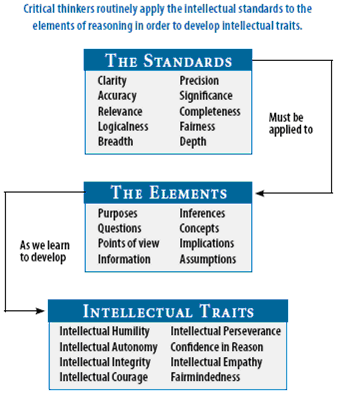 One conceptual set we will focus on is the elements of reasoning, or parts of thinking. The elements or parts of reasoning are those essential dimensions of reasoning that are present whenever and wherever reasoning occurs —independent of whether we are reasoning well or poorly. Working together, these elements shape reasoning and provide a general logic to the use of thought. They are presupposed in every subject, discipline, and domain of human thought.
One conceptual set we will focus on is the elements of reasoning, or parts of thinking. The elements or parts of reasoning are those essential dimensions of reasoning that are present whenever and wherever reasoning occurs —independent of whether we are reasoning well or poorly. Working together, these elements shape reasoning and provide a general logic to the use of thought. They are presupposed in every subject, discipline, and domain of human thought.
A second conceptual set we will focus on is universal intellectual standards. One of the fundamentals of critical thinking is the ability to assess reasoning. To be skilled at assessment requires that we consistently take apart thinking and examine the parts with respect to standards of quality. We do this using criteria based on clarity, accuracy, precision, relevance, depth, breadth, logicalness, and significance. Critical thinkers recognize that, whenever they are reasoning, they reason to some purpose (element of reasoning). Implicit goals are built into their thought processes. But their reasoning is improved when they are clear (intellectual standard) about that purpose or goal. Similarly, to reason well, they need to know that, consciously or unconsciously, they are using relevant (intellectual standard) information (element of reasoning) in their in thinking. Furthermore, their reasoning improves if and when they make sure that the information they are using is accurate (intellectual standard).
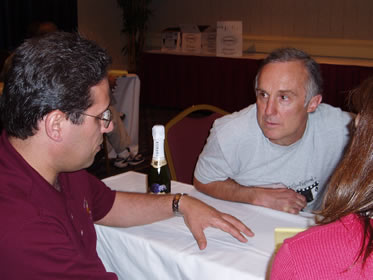 A third conceptual set in critical thinking is intellectual virtues or traits. Critical thinking does not entail merely intellectual skills. It is a way of orienting oneself in the world. It is a way of approaching problems that differs significantly from that which is typical in human life. People may have critical thinking skills and abilities, and yet still be unable to enter viewpoints with which they disagree. They may have critical thinking abilities, and yet still be unable to analyze the beliefs that guide their behavior. They may have critical thinking abilities, and yet be unable to distinguish between what they know and what they don’t know, to persevere through difficult problems and issues, to think fairmindedly, to stand alone against the crowd. Thus, in developing as a thinker, and fostering critical thinking abilities in others, it is important to develop intellectual virtues – the virtues of fairmindedness, intellectual humility, intellectual perseverance, intellectual courage, intellectual empathy, intellectual autonomy, intellectual integrity, and confidence in reason.
A third conceptual set in critical thinking is intellectual virtues or traits. Critical thinking does not entail merely intellectual skills. It is a way of orienting oneself in the world. It is a way of approaching problems that differs significantly from that which is typical in human life. People may have critical thinking skills and abilities, and yet still be unable to enter viewpoints with which they disagree. They may have critical thinking abilities, and yet still be unable to analyze the beliefs that guide their behavior. They may have critical thinking abilities, and yet be unable to distinguish between what they know and what they don’t know, to persevere through difficult problems and issues, to think fairmindedly, to stand alone against the crowd. Thus, in developing as a thinker, and fostering critical thinking abilities in others, it is important to develop intellectual virtues – the virtues of fairmindedness, intellectual humility, intellectual perseverance, intellectual courage, intellectual empathy, intellectual autonomy, intellectual integrity, and confidence in reason.
Choose one of these foundational sessions for the first day of the spring workshops:
-
Foundations of Critical Thinking: College and University
-
Foundations of Critical Thinking: K-12
-
Foundations of Critical Thinking: Institutional Leadership
{"id":"3323","title":"","author":"","content":"<hr />\r\n<p> </p>\r\n<p><span style=\"color: #000080;\"><span style=\"font-family: Verdana,Geneva,Arial,Helvetica,sans-serif; font-weight: bold;\">Session Descriptions</span></span></p>\r\n<p><a name=\"dayone\"></a><span style=\"color: #0000ff;\"><span><strong>Day One, Friday: The Foundations of Critical Thinking</strong></span></span><br /> The first day of the spring workshops will focus on the fundamentals of critical thinking. This session will lay the foundation for the other workshop sessions. It will introduce you to some of the most basic understandings in critical thinking – namely, how to analyze thinking, how to assess it, and how to develop and foster intellectual virtues or dispositions.<br /> <br /> <br /> <img style=\"width: 338px; height: 399px; float: right; margin-left: 10px; margin-right: 10px;\" src=\"https://www.criticalthinking.org/images/spring2011-schema.gif\" alt=\"\" />One conceptual set we will focus on is the <span style=\"text-decoration: underline;\">elements of reasoning</span>, or <em>parts of thinking</em>. The elements or parts of reasoning are those essential dimensions of reasoning that are present whenever and wherever reasoning occurs —independent of whether we are reasoning well or poorly. Working together, these elements shape reasoning and provide a general logic to the use of thought. They are presupposed in every subject, discipline, and domain of human thought.<br /> <br /> A second conceptual set we will focus on is universal <span style=\"text-decoration: underline;\">intellectual standards</span>. One of the fundamentals of critical thinking is the ability to assess reasoning. To be skilled at assessment requires that we consistently take apart thinking and examine the parts with respect to standards of quality. We do this using criteria based on clarity, accuracy, precision, relevance, depth, breadth, logicalness, and significance. Critical thinkers recognize that, whenever they are reasoning, they reason to some purpose (element of reasoning). Implicit goals are built into their thought processes. But their reasoning is improved when they are clear (intellectual standard) about that purpose or goal. Similarly, to reason well, they need to know that, consciously or unconsciously, they are using relevant (intellectual standard) information (element of reasoning) in their in thinking. Furthermore, their reasoning improves if and when they make sure that the information they are using is accurate (intellectual standard).<br /> <br /> <img style=\"margin-left: 10px; margin-right: 10px; float: right; width: 373px; height: 280px;\" src=\"https://www.criticalthinking.org/images/spring2011-p1010011.jpg\" alt=\"\" />A third conceptual set in critical thinking is <span style=\"text-decoration: underline;\">intellectual virtues</span> or traits. Critical thinking does not entail merely intellectual skills. It is a way of orienting oneself in the world. It is a way of approaching problems that differs significantly from that which is typical in human life. People may have critical thinking skills and abilities, and yet still be unable to enter viewpoints with which they disagree. They may have critical thinking abilities, and yet still be unable to analyze the beliefs that guide their behavior. They may have critical thinking abilities, and yet be unable to distinguish between what they know and what they don’t know, to persevere through difficult problems and issues, to think fairmindedly, to stand alone against the crowd. Thus, in developing as a thinker, and fostering critical thinking abilities in others, it is important to develop intellectual virtues – the virtues of fairmindedness, intellectual humility, intellectual perseverance, intellectual courage, intellectual empathy, intellectual autonomy, intellectual integrity, and confidence in reason.<br /> <br /> Choose one of these foundational sessions for the first day of the spring workshops:</p>\r\n<ul>\r\n<li>\r\n<p><span style=\"color: #000080;\">Foundations of Critical Thinking: College and University</span></p>\r\n</li>\r\n<li>\r\n<p><span style=\"color: #000080;\">Foundations of Critical Thinking: K-12</span></p>\r\n</li>\r\n<li>\r\n<p><span style=\"color: #000080;\">Foundations of Critical Thinking: Institutional Leadership<br /> </span></p>\r\n</li>\r\n</ul>\r\n<p><br style=\"clear: both;\" /></p>","public_access":"1","public_downloads":"1","sku":"","files":{},"images":{}}
Days Two and Three, Saturday and Sunday: choose one of the following
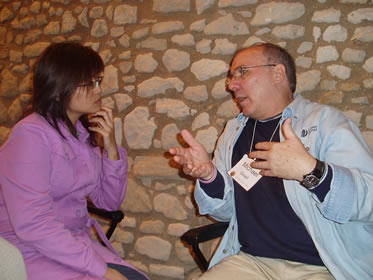 Teaching Students to Ask Essential Questions Within Any Subject or Discipline…Dr. Richard Paul
Teaching Students to Ask Essential Questions Within Any Subject or Discipline…Dr. Richard Paul
It is not possible to be a good thinker and a poor questioner. Questions define tasks, express problems, and delineate issues. They drive thinking forward. Answers, on the other hand, often bring an end to thought. Only when an answer generates further questions does thought continue as inquiry. A mind with no questions is a mind that is not intellectually alive. No questions (asked) equals no understanding (achieved). Superficial questions equal superficial understanding, unclear questions equal unclear understanding. If your mind is not actively generating questions, you are not engaged in substantive learning. So the question is raised, “How can we teach so that students generate questions that lead to deep learning?” In this workshop we shall focus on practical strategies for generating questioning minds---at the same time, of course, that students learn the content that is at the heart of the curriculum.
Redesigning Instruction: Placing Critical Thinking at the Heart of Teaching and Learning…Dr. Enoch Hale
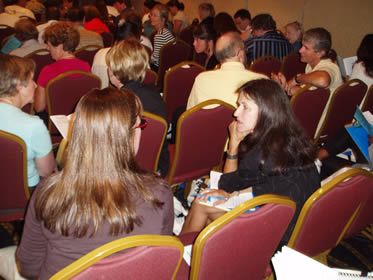 To study well and learn any subject is to learn how to think with discipline within that subject. It is to learn to think within its logic, to:
To study well and learn any subject is to learn how to think with discipline within that subject. It is to learn to think within its logic, to:
-
raise vital questions and problems within it, formulating them clearly and precisely.
-
gather and assess information, using ideas to interpret that information insightfully.
-
come to well-reasoned conclusions and solutions, testing them against relevant criteria and standards.
-
adopt the point of view of the discipline, recognizing and assessing, as need be, its assumptions, implications, and practical consequences.
-
communicate effectively with others using the language of the discipline and that of educated public discourse.
-
relate what one is learning in the subject to other subjects and to what is significant in human life.
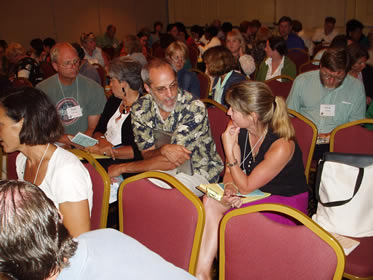 To become a skilled learner is to become a self-directed, self-disciplined, self-monitored, and self-corrective thinker who has given assent to rigorous standards of thought and mindful command of their use. Skilled learning of a discipline requires that one respect the power of it, as well as its, and one’s own, historical and human limitations. This workshop will offer strategies for helping students begin to take learning seriously.
To become a skilled learner is to become a self-directed, self-disciplined, self-monitored, and self-corrective thinker who has given assent to rigorous standards of thought and mindful command of their use. Skilled learning of a discipline requires that one respect the power of it, as well as its, and one’s own, historical and human limitations. This workshop will offer strategies for helping students begin to take learning seriously.
It focuses on the idea that substantive teaching and learning can occur only when students take ownership of the most basic principles and concepts of the subject.
Cultivating Emotional Intelligence Through Critical Thinking…Dr. Linda Elder
To develop emotional intelligence is to achieve command of the workings of our minds. It is our minds that generate our thoughts, feelings, and desires. It is our students’ minds that control not only how they study and learn but how they make decisions and conduct their lives. Part of understanding the role of critical thinking is enabling us to understand the relationship between thoughts and emotions. To be in command of one’s emotional life is to have command of the faculties of mind that determine it: thoughts, emotions, and desires working together. Student emotions play an important part in their lives as students. When they bring learned indifference, irrational fears, acquired hostility, and inflexible ideas into the classroom, their learning is limited to the superficial. This session provides a structure for helping students improve the quality of their work and lives. It focuses on the relationship between cognition and affect, as well as the barriers to critical thinking development, namely egocentric and sociocentric thought.
{"id":3324,"title":"","author":"","content":"<p>&nbsp;</p>\r\n<p><a name=\"daystwoandthree\"></a><span><strong><span style=\"color: #0000ff;\">Days Two and Three, Saturday and Sunday</span>:</strong></span><em><span> choose one of the following</span></em><br /> <br /> <strong><span style=\"color: #000080;\"><img style=\"margin-left: 10px; margin-right: 10px; float: right; width: 373px; height: 280px;\" src=\"https://www.criticalthinking.org/images/spring2011-p1010058.jpg\" alt=\"\" />Teaching Students to Ask Essential Questions Within Any Subject or Discipline</span>&hellip;Dr. Richard Paul</strong><br /> It is not possible to be a good thinker and a poor questioner. Questions define tasks, express problems, and delineate issues. They drive thinking forward. Answers, on the other hand, often bring an end to thought. Only when an answer generates further questions does thought continue as inquiry. A mind with no questions is a mind that is not intellectually alive. No questions (asked) equals no understanding (achieved). Superficial questions equal superficial understanding, unclear questions equal unclear understanding. If your mind is not actively generating questions, you are not engaged in substantive learning. So the question is raised, &ldquo;How can we teach so that students generate questions that lead to deep learning?&rdquo; In this workshop we shall focus on practical strategies for generating questioning minds---at the same time, of course, that students learn the content that is at the heart of the curriculum.<br /> <span style=\"color: #000080;\"><br /> </span><strong><span style=\"color: #000080;\">Redesigning Instruction: Placing Critical Thinking at the Heart of Teaching and Learning</span>&hellip;Dr. Enoch Hale<br /> </strong><br /> <img style=\"margin-left: 10px; margin-right: 10px; float: right; width: 373px; height: 280px;\" src=\"https://www.criticalthinking.org/images/spring2011-p1010057.jpg\" alt=\"\" />To study well and learn any subject is to learn how to think with discipline within that subject. It is to learn to think within its logic, to:</p>\r\n<ul>\r\n<li>\r\n<p>raise vital questions and problems within it, formulating them clearly and precisely.</p>\r\n</li>\r\n<li>\r\n<p>gather and assess information, using ideas to interpret that information insightfully.</p>\r\n</li>\r\n<li>\r\n<p>come to well-reasoned conclusions and solutions, testing them against relevant criteria and standards.</p>\r\n</li>\r\n<li>\r\n<p>adopt the point of view of the discipline, recognizing and assessing, as need be, its assumptions, implications, and practical consequences.</p>\r\n</li>\r\n<li>\r\n<p>communicate effectively with others using the language of the discipline and that of educated public discourse.</p>\r\n</li>\r\n<li>\r\n<p>relate what one is learning in the subject to other subjects and to what is significant in human life.</p>\r\n</li>\r\n</ul>\r\n<p><img style=\"margin-left: 10px; margin-right: 10px; float: right; width: 373px; height: 280px;\" src=\"https://www.criticalthinking.org/images/spring2011-p1010070.jpg\" alt=\"\" />To become a skilled learner is to become a self-directed, self-disciplined, self-monitored, and self-corrective thinker who has given assent to rigorous standards of thought and mindful command of their use. Skilled learning of a discipline requires that one respect the power of it, as well as its, and one&rsquo;s own, historical and human limitations. This workshop will offer strategies for helping students begin to take learning seriously.<br /> It focuses on the idea that substantive teaching and learning can occur only when students take ownership of the most basic principles and concepts of the subject. &nbsp;<br /> <span style=\"color: #000080;\"><br /> </span><strong><span style=\"color: #000080;\">Cultivating Emotional Intelligence Through Critical Thinking</span>&hellip;Dr. Linda Elder</strong><br /> To develop emotional intelligence is to achieve command of the workings of our minds.&nbsp; It is our minds that generate our thoughts, feelings, and desires.&nbsp; It is our students&rsquo; minds that control not only how they study and learn but how they make decisions and conduct their lives. Part of understanding the role of critical thinking is enabling us to understand the relationship between thoughts and emotions. To be in command of one&rsquo;s emotional life is to have command of the faculties of mind that determine it: thoughts, emotions, and desires working together. Student emotions play an important part in their lives as students. When they bring learned indifference, irrational fears, acquired hostility, and inflexible ideas into the classroom, their learning is limited to the superficial. This session provides a structure for helping students improve the quality of their work and lives.&nbsp;&nbsp; It focuses on the relationship between cognition and affect, as well as the barriers to critical thinking development, namely egocentric and sociocentric thought.</p>\r\n<div>\r\n<hr />\r\n</div>\r\n<p><br style=\"clear: both;\" /></p>","public_access":"1","public_downloads":"1","sku":"","files":{},"images":{}}
About Our Presenters…
Our workshop presenters are fellows of the Foundation for Critical Thinking. Together they have conducted workshops for more than 50 years to more than 50,000 educators at all levels.
Dr. Richard Paul
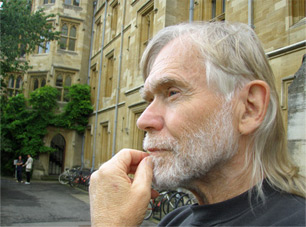 As Director of Research and Professional Development at the Center for Critical Thinking and Chair of the National Council for Excellence in Critical Thinking, Dr. Paul is an internationally recognized authority on critical thinking, with eight books and over 200 articles on the subject. He has written books for every grade level and has done extensive experimentation with teaching tactics and strategies, and devising, among other things, novel ways to engage students in rigorous self-assessment.
As Director of Research and Professional Development at the Center for Critical Thinking and Chair of the National Council for Excellence in Critical Thinking, Dr. Paul is an internationally recognized authority on critical thinking, with eight books and over 200 articles on the subject. He has written books for every grade level and has done extensive experimentation with teaching tactics and strategies, and devising, among other things, novel ways to engage students in rigorous self-assessment.
Dr. Paul has received four degrees and has given lectures on critical thinking at many universities in both the United States and abroad, including Harvard, the University of Chicago, the University of Illinois, and the universities of Puerto Rico, Costa Rica, British Columbia, Toronto, and Amsterdam. He taught beginning and advanced courses in critical thinking at the university level for over 20 years. He has been the recipient of numerous honors and awards, including Distinguished Philosopher (by the Council for Philosophical Studies, 1987), O.C. Tanner Lecturer in Humanities (by Utah State University, 1986), Lansdown Visiting Scholar (by the University of Victoria, 1987), and the Alfred Korsybski Memorial Lecturer (by the Institute for General Semantics, 1987).
His views on critical thinking have been canvassed in the New York Times, Education Week, The Chronicle of Higher Education, American Teacher, Reader’s Digest, Educational Leadership, Newsweek, and U.S. News and World Report. Dr. Paul’s wide-ranging knowledge, practical strategies, and enthusiasm make him highly sought-after as a keynoter and workshop presenter.
{"id":3325,"title":"","author":"","content":"<p>&nbsp;</p>\r\n<p><span style=\"color: #000080;\"><span style=\"font-family: Verdana,Geneva,Arial,Helvetica,sans-serif; font-weight: bold;\">About Our Presenters&hellip;</span></span><br /> Our workshop presenters are fellows of the Foundation for Critical Thinking. Together they have conducted workshops for more than 50 years to more than 50,000 educators at all levels.</p>\r\n<p><span style=\"color: #660000;\"><span><strong>Dr. Richard Paul</strong></span></span><br /> <br /> <img style=\"width: 306px; height: 227px; margin-left: 10px; margin-right: 10px; float: right;\" src=\"https://www.criticalthinking.org/images/spring2011-img5.jpg\" alt=\"\" />As Director of Research and Professional Development at the Center for Critical Thinking and Chair of the National Council for Excellence in Critical Thinking, Dr. Paul is an internationally recognized authority on critical thinking, with eight books and over 200 articles on the subject. He has written books for every grade level and has done extensive experimentation with teaching tactics and strategies, and devising, among other things, novel ways to engage students in rigorous self-assessment.<br /> Dr. Paul has received four degrees and has given lectures on critical thinking at many universities in both the United States and abroad, including Harvard, the University of Chicago, the University of Illinois, and the universities of Puerto Rico, Costa Rica, British Columbia, Toronto, and Amsterdam. He taught beginning and advanced courses in critical thinking at the university level for over 20 years.&nbsp; He has been the recipient of numerous honors and awards, including Distinguished Philosopher (by the Council for Philosophical Studies, 1987), O.C. Tanner Lecturer in Humanities (by Utah State University, 1986), Lansdown Visiting Scholar (by the University of Victoria, 1987), and the Alfred Korsybski Memorial Lecturer (by the Institute for General Semantics, 1987).<br /> His views on critical thinking have been canvassed in the New York Times, Education Week, The Chronicle of Higher Education, American Teacher, Reader&rsquo;s Digest, Educational Leadership, Newsweek, and U.S. News and World Report. Dr. Paul&rsquo;s wide-ranging knowledge, practical strategies, and enthusiasm make him highly sought-after as a keynoter and workshop presenter.</p>\r\n<p><br style=\"clear: both;\" /></p>","public_access":"1","public_downloads":"1","sku":"","files":{},"images":{}}
Dr. Linda Elder
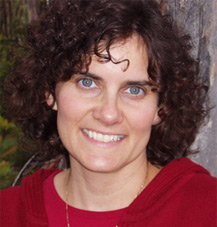 Dr. Linda Elder is an educational psychologist and a prominent authority on critical thinking. She is President of the Foundation for Critical Thinking and Executive Director of the Center for Critical Thinking. Dr. Elder has taught psychology and critical thinking at the college level and has given presentations to more than 20,000 educators at all levels. She has co-authored four books, including Critical Thinking: Tools for Taking Charge of Your Learning and Your Life, Critical Thinking: Tools for Taking Charge of Your Professional and Personal Life and Twenty-Five Days to Better Thinking and Better Living. She has co-authored eighteen thinker’s guides on critical thinking and co-authors a quarterly column on critical thinking in the Journal of Developmental Education.
Dr. Linda Elder is an educational psychologist and a prominent authority on critical thinking. She is President of the Foundation for Critical Thinking and Executive Director of the Center for Critical Thinking. Dr. Elder has taught psychology and critical thinking at the college level and has given presentations to more than 20,000 educators at all levels. She has co-authored four books, including Critical Thinking: Tools for Taking Charge of Your Learning and Your Life, Critical Thinking: Tools for Taking Charge of Your Professional and Personal Life and Twenty-Five Days to Better Thinking and Better Living. She has co-authored eighteen thinker’s guides on critical thinking and co-authors a quarterly column on critical thinking in the Journal of Developmental Education.
Dr. Elder has also developed an original stage theory of critical thinking development. Concerned with understanding and illuminating the relationship between thinking and affect, and the barriers to critical thinking, Dr. Elder has placed these issues at the center of her thinking and her work.
With experience in both administration and the classroom, Dr. Elder understands first hand the problems facing educators. She is a dynamic presenter who reaches her audience on a person-to person level.
{"id":3326,"title":"","author":"","content":"<p><span style=\"color: #660000;\"><span><strong>Dr. Linda Elder</strong></span></span><br /> <br /> <img style=\"width: 217px; height: 227px; margin-left: 10px; margin-right: 10px; float: right;\" src=\"https://www.criticalthinking.org/images/spring2011-img6.jpg\" alt=\"\" />Dr. Linda Elder is an educational psychologist and a prominent authority on critical thinking. She is President of the Foundation for Critical Thinking and Executive Director of the Center for Critical Thinking. Dr. Elder has taught psychology and critical thinking at the college level and has given presentations to more than 20,000 educators at all levels. She has co-authored four books, including <em>Critical Thinking: Tools for Taking Charge of Your Learning and Your Life, Critical Thinking: Tools for Taking Charge of Your Professional and Personal Life and Twenty-Five Days to Better Thinking and Better Living.</em>&nbsp; She has co-authored eighteen thinker&rsquo;s guides on critical thinking and co-authors a quarterly column on critical thinking in the Journal of Developmental Education.<br /> <br /> Dr. Elder has also developed an original stage theory of critical thinking development.&nbsp; Concerned with understanding and illuminating the relationship between thinking and affect, and the barriers to critical thinking, Dr. Elder has placed these issues at the center of her thinking and her work.<br /> <br /> With experience in both administration and the classroom, Dr. Elder understands first hand the problems facing educators. She is a dynamic presenter who reaches her audience on a person-to person level.</p>\r\n<p><br style=\"clear: both;\" /></p>","public_access":"1","public_downloads":"1","sku":"","files":{},"images":{}}
{"id":"3327","title":"","author":"","content":"","public_access":"1","public_downloads":"1","sku":"","files":[],"images":[]}
{"id":3328,"title":"","author":"","content":"<p><span class=\"Apple-style-span\" style=\"color: #000080; font-family: verdana,geneva,arial,helvetica,sans-serif;\"><strong>&nbsp;</strong></span><a style=\"color: #000080; font-family: verdana,geneva,arial,helvetica,sans-serif; font-weight: bold;\" href=\"https://www.criticalthinking.org/store-page.cfm?P=products&amp;ItemID=413&amp;catalogID=219&amp;cateID=135\"><span><strong>REGISTER ONLINE NOW</strong></span></a><br /> <span class=\"Apple-style-span\" style=\"font-family: 'Times New Roman';\"><span class=\"Apple-style-span\"><br /> </span></span></p>\r\n<p><br style=\"clear: both;\" /></p>","public_access":"1","public_downloads":"1","sku":"","files":{},"images":{}}



 Day One, Friday: choose one of the following…see descriptions below
Day One, Friday: choose one of the following…see descriptions below One conceptual set we will focus on is the elements of reasoning, or parts of thinking. The elements or parts of reasoning are those essential dimensions of reasoning that are present whenever and wherever reasoning occurs —independent of whether we are reasoning well or poorly. Working together, these elements shape reasoning and provide a general logic to the use of thought. They are presupposed in every subject, discipline, and domain of human thought.
One conceptual set we will focus on is the elements of reasoning, or parts of thinking. The elements or parts of reasoning are those essential dimensions of reasoning that are present whenever and wherever reasoning occurs —independent of whether we are reasoning well or poorly. Working together, these elements shape reasoning and provide a general logic to the use of thought. They are presupposed in every subject, discipline, and domain of human thought. A third conceptual set in critical thinking is intellectual virtues or traits. Critical thinking does not entail merely intellectual skills. It is a way of orienting oneself in the world. It is a way of approaching problems that differs significantly from that which is typical in human life. People may have critical thinking skills and abilities, and yet still be unable to enter viewpoints with which they disagree. They may have critical thinking abilities, and yet still be unable to analyze the beliefs that guide their behavior. They may have critical thinking abilities, and yet be unable to distinguish between what they know and what they don’t know, to persevere through difficult problems and issues, to think fairmindedly, to stand alone against the crowd. Thus, in developing as a thinker, and fostering critical thinking abilities in others, it is important to develop intellectual virtues – the virtues of fairmindedness, intellectual humility, intellectual perseverance, intellectual courage, intellectual empathy, intellectual autonomy, intellectual integrity, and confidence in reason.
A third conceptual set in critical thinking is intellectual virtues or traits. Critical thinking does not entail merely intellectual skills. It is a way of orienting oneself in the world. It is a way of approaching problems that differs significantly from that which is typical in human life. People may have critical thinking skills and abilities, and yet still be unable to enter viewpoints with which they disagree. They may have critical thinking abilities, and yet still be unable to analyze the beliefs that guide their behavior. They may have critical thinking abilities, and yet be unable to distinguish between what they know and what they don’t know, to persevere through difficult problems and issues, to think fairmindedly, to stand alone against the crowd. Thus, in developing as a thinker, and fostering critical thinking abilities in others, it is important to develop intellectual virtues – the virtues of fairmindedness, intellectual humility, intellectual perseverance, intellectual courage, intellectual empathy, intellectual autonomy, intellectual integrity, and confidence in reason. Teaching Students to Ask Essential Questions Within Any Subject or Discipline…Dr. Richard Paul
Teaching Students to Ask Essential Questions Within Any Subject or Discipline…Dr. Richard Paul To study well and learn any subject is to learn how to think with discipline within that subject. It is to learn to think within its logic, to:
To study well and learn any subject is to learn how to think with discipline within that subject. It is to learn to think within its logic, to: To become a skilled learner is to become a self-directed, self-disciplined, self-monitored, and self-corrective thinker who has given assent to rigorous standards of thought and mindful command of their use. Skilled learning of a discipline requires that one respect the power of it, as well as its, and one’s own, historical and human limitations. This workshop will offer strategies for helping students begin to take learning seriously.
To become a skilled learner is to become a self-directed, self-disciplined, self-monitored, and self-corrective thinker who has given assent to rigorous standards of thought and mindful command of their use. Skilled learning of a discipline requires that one respect the power of it, as well as its, and one’s own, historical and human limitations. This workshop will offer strategies for helping students begin to take learning seriously. As Director of Research and Professional Development at the Center for Critical Thinking and Chair of the National Council for Excellence in Critical Thinking, Dr. Paul is an internationally recognized authority on critical thinking, with eight books and over 200 articles on the subject. He has written books for every grade level and has done extensive experimentation with teaching tactics and strategies, and devising, among other things, novel ways to engage students in rigorous self-assessment.
As Director of Research and Professional Development at the Center for Critical Thinking and Chair of the National Council for Excellence in Critical Thinking, Dr. Paul is an internationally recognized authority on critical thinking, with eight books and over 200 articles on the subject. He has written books for every grade level and has done extensive experimentation with teaching tactics and strategies, and devising, among other things, novel ways to engage students in rigorous self-assessment. Dr. Linda Elder is an educational psychologist and a prominent authority on critical thinking. She is President of the Foundation for Critical Thinking and Executive Director of the Center for Critical Thinking. Dr. Elder has taught psychology and critical thinking at the college level and has given presentations to more than 20,000 educators at all levels. She has co-authored four books, including Critical Thinking: Tools for Taking Charge of Your Learning and Your Life, Critical Thinking: Tools for Taking Charge of Your Professional and Personal Life and Twenty-Five Days to Better Thinking and Better Living. She has co-authored eighteen thinker’s guides on critical thinking and co-authors a quarterly column on critical thinking in the Journal of Developmental Education.
Dr. Linda Elder is an educational psychologist and a prominent authority on critical thinking. She is President of the Foundation for Critical Thinking and Executive Director of the Center for Critical Thinking. Dr. Elder has taught psychology and critical thinking at the college level and has given presentations to more than 20,000 educators at all levels. She has co-authored four books, including Critical Thinking: Tools for Taking Charge of Your Learning and Your Life, Critical Thinking: Tools for Taking Charge of Your Professional and Personal Life and Twenty-Five Days to Better Thinking and Better Living. She has co-authored eighteen thinker’s guides on critical thinking and co-authors a quarterly column on critical thinking in the Journal of Developmental Education.